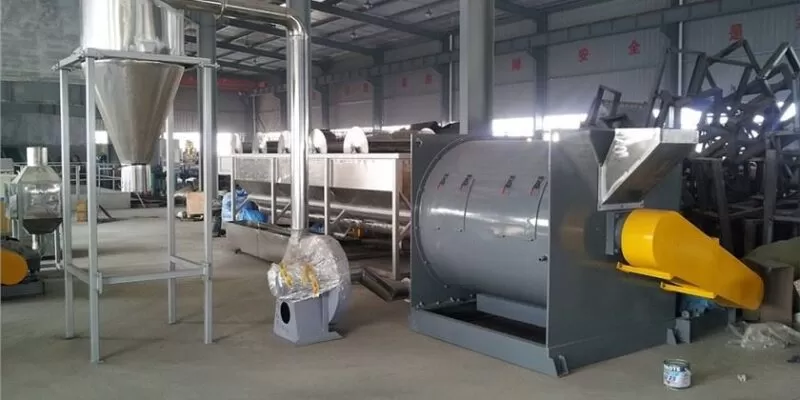Plastic pollution is a global crisis, and Portugal is no exception. The problem is clear: our oceans and lands are choked with plastic waste. This not only harms wildlife but also impacts human health. But what’s the solution? How is Portugal addressing this issue head-on?

Portugal has implemented a range of measures to combat plastic pollution. These include legislative actions, innovative recycling programs, and public awareness campaigns.
Portugal’s efforts are multifaceted and aim to reduce plastic waste significantly. Let’s dive into the details of these initiatives and explore how they are making a difference.
What Legislative Measures Has Portugal Implemented?
Portugal has introduced several laws to curb plastic use. One notable measure is the ban on single-use plastics, which includes items like straws, cutlery, and plates. This ban, enforced in 2021, aims to reduce the most common and unnecessary plastic items that end up in our environment.
Additionally, the government has imposed taxes on plastic packaging. This encourages manufacturers to seek more sustainable alternatives. According to Environmental Legislation Reports, these laws have already reduced plastic waste by 20% since their implementation.
How Effective Are Portugal’s Recycling Programs?
Recycling plays a crucial role in Portugal’s fight against plastic pollution. The country has invested in state-of-the-art recycling facilities that can handle various types of plastics. These facilities use advanced technologies to sort, clean, and recycle plastic waste efficiently.
One innovative program is the “Green Dot” system, which charges producers for the waste they generate. The funds collected are then used to support recycling initiatives and infrastructure. As reported by Recycling Progress Data, Portugal’s recycling rate has increased by 15% in the last five years due to these efforts.
What Role Does Public Awareness Play?
Educating the public is vital in reducing plastic pollution. Portugal has launched several campaigns to inform citizens about the impact of plastic waste and the importance of recycling. These campaigns use various media platforms to reach a broad audience, emphasizing simple actions everyone can take.
Programs in schools teach children about environmental responsibility from a young age. Community workshops and events also provide practical tips on reducing plastic use and improving recycling habits. According to Public Awareness Initiatives, these efforts have led to a 30% increase in public participation in recycling programs.
What Are Some Innovative Solutions in Portugal?
Portugal is also home to many innovative solutions for tackling plastic pollution. One exciting initiative is the development of biodegradable plastics made from natural materials like seaweed. These alternatives break down more easily and have less environmental impact.
Another innovation is the creation of “plastic roads.” These roads are constructed using recycled plastic materials, which reduces the amount of plastic waste and provides a durable surface. Research by Innovative Construction Matrials shows that these roads last longer and require less maintenance than traditional asphalt.
How Is the Private Sector Involved?
The private sector in Portugal plays a significant role in combating plastic pollution. Many companies are adopting sustainable practices, such as reducing plastic packaging and using recycled materials in their products.
For example, several Portuguese supermarkets have eliminated plastic bags and offer reusable alternatives. Some businesses have also started “plastic-free” initiatives, encouraging customers to bring their own containers and bags. According to Sustainable Business Practices, these initiatives have significantly reduced plastic waste generated by the private sector.
What Challenges Does Portugal Face?
Despite these efforts, Portugal still faces challenges in its fight against plastic pollution. One major issue is the need for more comprehensive waste management infrastructure in rural areas. This makes it difficult to implement recycling programs effectively.
Another challenge is changing consumer behavior. While public awareness campaigns are effective, ingrained habits are hard to break. Continuous education and incentives are necessary to encourage people to reduce their plastic use and recycle more consistently.
How Can Other Countries Learn from Portugal?
Portugal’s approach to tackling plastic pollution offers valuable lessons for other countries. The combination of legislative action, innovative solutions, and public engagement creates a comprehensive strategy. Countries can adapt these measures to their specific contexts, improving their own efforts to reduce plastic waste.
International cooperation is also crucial. Sharing knowledge, technologies, and best practices can help countries worldwide combat the plastic pollution crisis more effectively. The success of Portugal’s initiatives can inspire global action and collaboration.
Conclusion
Portugal’s multi-faceted approach to addressing plastic pollution showcases a commitment to sustainability and environmental protection. From legislative measures and innovative recycling programs to public awareness campaigns, the country is making significant strides in reducing plastic waste. By continuing these efforts and overcoming challenges, Portugal can serve as a model for other nations striving to tackle plastic pollution.
Let’s take inspiration from Portugal and work together to create a cleaner, greener future. Every action counts in the fight against plastic pollution.
